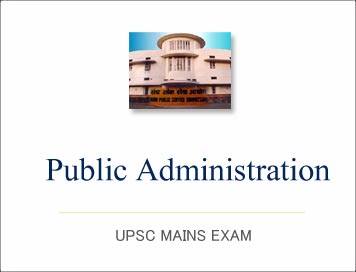
Public Administration Mains 2019 : Solved Paper Question Paper-2 (Question-4)
SECTION-A
Q1. “Considerable attention has been paid to the restructuring of the administrative systems at the Central and local levels, but very few reforms have been undertaken at the State level. What steps would you suggest to rectify it? 20 Marks
ANSWER: The central government now offers states the opportunity to shape their own destinies. To this end, it outlines the reforms that are within their power in areas of agriculture, industry, urban development, infrastructure, health, and education.
The national reforms have shaped the economies of different states in India. It shows that, unlike China, where growth has been uneven across regions, growth acceleration in India has successfully penetrated every state. Each state has grown faster during the last decade than any other decade in the post-independence era. Some of the poorest states, notably Bihar and Orissa, have been among the fastest growing states.
Reforms have also helped bring poverty down in every single state and across all major social and religious groups. The liberalization by the central government now offers states the opportunity to shape their own destinies. To this end, it outlines the reforms that are within their power in areas of agriculture, industry, urban development, infrastructure, health, and education. It draws on the experience of states that have successfully carried out some of these reforms.
(b) It is observed that non-functioning of District Planning Committees is preventing the convergence of rural and urban planning needs. Do you agree? Justify. 20 Marks
ANSWER: ONLY FOR COURSE MEMBERS
(c) The police-public interface is punctuated with distrust and fear. Suggest how the police can reform its image in the eyes of the public. 10 Marks
ANSWER: ONLY FOR COURSE MEMBERS